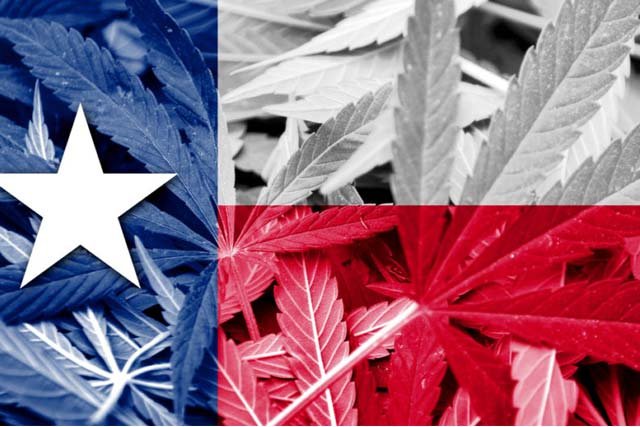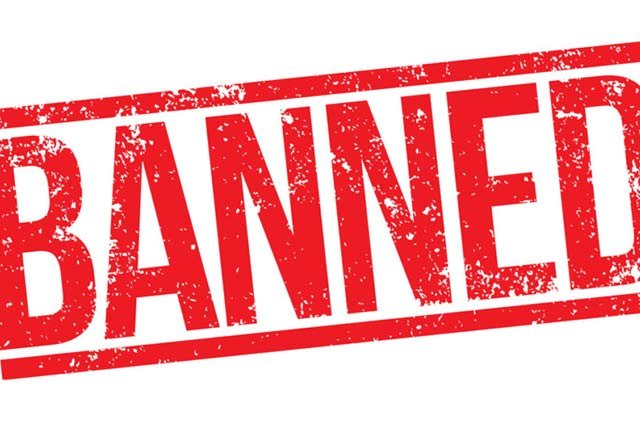Delta-8-THC (delta-8) products have taken the hemp market by storm, and weed lovers around the United States cannot believe their luck. Lawmakers and regulators have been slow to react to this new form of marijuana. But can you legally buy delta-8 in Texas?
Delta-8 is currently legal in Texas. However, legislators are contemplating banning the substance. Delta-8 became legal in Texas as part of the 2018 Farm Bill that legalized hemp-derived products. However, delta-8 has proven controversial among lawmakers due to its psychoactive properties.
In this post, I’ll explain the legal details surrounding delta-8 in Texas, examine its history in the state, and explore the compound’s uncertain future. Delta-8 is a hot topic in Texas right now – let’s get up to speed on what’s been happening!
Delta-8 State Law in Texas
Even though marijuana is illegal in Texas, the state does not currently have any legislation restricting delta-8. This is perhaps a surprise, given that 18 states have banned delta-8 since September 2022.
So far, Texas has followed the federal government on hemp and delta-8. Texas Agriculture Code Section 121.001 lays it all out.
The statute describes hemp as the Cannabis Sativa L. plant and any part of that plant, “including the seeds of the plant, and all derivatives, extracts, cannabinoids, isomers, acids, salts, and salts of isomers.” Delta-9-THC (the regular THC that gets you high) is capped at 0.3% on a dry-weight basis.
Nothing in the statute refers to delta-8 or any other cannabinoids bearing close resemblance to THC. Essentially, all components – except for THC – of the cannabis plant are legal and unrestricted.
Delta-8 Federal Law
Hemp-derived products have been available in the United States since 2014. The federal government sought to clarify the legal landscape around these products with the 2018 Agriculture Improvement Act, or the Farm Bill.
The wording of the bill was focused on providing legal certainty to non-psychoactive cannabidiol (CBD) products. However, since the law only concentrated on restricting THC, other cannabinoids – and there are more than 100 in hemp! – were overlooked.
In truth, few thought that an obscure compound like delta-8 would ever matter. While cannabis and hemp plants naturally produce this psychoactive cannabinoid, it’s found in tiny concentrations.
Delta-8, synthetic drugs, and the DEA
However, because delta-8 is a naturally occurring compound, that doesn’t mean delta-8 products are 100% natural. Most of the delta-8 on sale isn’t.
With hemp only generating small quantities of delta-8, making products from hemp extract alone would be ridiculously expensive. Vast amounts of hemp flower would be needed, and e-liquids and edibles would likely cost hundreds of dollars.
Instead, manufacturers make delta-8 in a laboratory using CBD isolate. The process involves submerging CBD isolate in a mixture of toluene and hydrochloric acid. The substances react together and churn out delta-8.
Unsurprisingly, this has proven controversial. Can the delta-8 on sale today genuinely be described as natural?
Some argue yes since CBD-isolate is produced naturally. Others claim that the laboratory process makes delta-8 products synthetic drugs.
The Drug Enforcement Administration (DEA) attempted to address any confusion regarding the 2018 Farm Bill by publishing an Interim Final Rule (IFR) in 2020. The IFR stated that “all synthetically derived tetrahydrocannabinols remain Schedule 1 substances.”
Whatever the IFR is supposed to mean, the reality is that it hasn’t stopped manufacturers from making delta-8 products or businesses from selling them. Initial worries about the IFR quickly subsided, and the burgeoning delta-8 market thrived.
Is Delta-8 a synthetic drug?

Since Texas has moved in step with the federal government on hemp, the question of whether delta-8 is synthetic or not is relevant.
I would argue that delta-8 isn’t necessarily synthetic because it’s manufactured in a laboratory. Nor would I agree that it’s a “synthetic cannabinoid.” Let me offer a little more context.
Over recent years, the drug scene has been plagued by synthetic cannabinoid products such as spice (K2). Spice mimics the effects of THC but is much more robust, more addictive, causes horrid side effects, and has even killed people.
Spice is created from start to finish in a laboratory and has no natural basis. It’s the very definition of a synthetic tetrahydrocannabinol.
Whatever delta-8 is, it’s not spice. When publishing the IFR, it’s reasonable to suggest the DEA was coming after Spice and its counterparts rather than delta-8.
I cannot make a case for delta-8 being 100% natural, either. Dipping CBD isolate into hydrochloric acid is anything but natural! And without this process, there would be no delta-8 market.
Delta-8 products are unique – a natural-synthetic hybrid, if you will. The current federal law wording on hemp doesn’t take delta-8 into account.
The delta-8 industry exists in a gray area, but since the IFR on synthetic drugs has not led to its downfall, the DEA perhaps doesn’t view it as synthetic. At least not right now.
The Legality of Selling Delta-8 in Texas

Businesses can legally sell delta-8 in Texas without fear. The IFR hasn’t put online or brick-and-mortar companies off delta-8. If you live in Texas, vendors will ship delta-8 to you, no questions asked.
You can find delta-8 products in wellness stores, vape shops, and more. Companies already selling hemp-derived CBD products may stock delta-8 products, too.
Buying delta-8 safely in Texas
While you can walk into a store and buy delta-8, I strongly recommend purchasing from an established online hemp vendor like CBD Genesis.
Firstly, you have the costs to consider. Online stores don’t have the overheads that brick-and-mortar stores do. With fewer bills, online companies can offer the same products for less.
Secondly, you’re more likely to find crucial third-party lab reports online. These papers confirm that products are safe and legit, checking for potency and the presence of heavy metals, bacteria, and other nasties.
Not all stores have lab reports to hand. You will probably be accepted at a specialized vape store, but headshops and gas stations are notorious for selling questionable products.
The 2019-20 vaping lung illness outbreak showed that you cannot be too careful. Fake THC products containing vitamin E acetate resulted in more than 2700 hospitalizations and 60 deaths.
Be wary of secretive companies selling products at low prices. You probably aren’t if you don’t think you are getting the whole story.
In contrast, the industry’s leading brands cannot wait to tell you they are doing things by the book. Companies acting ethically and responsibly will do everything necessary to prove it.
History of Delta-8 in Texas
Delta-8 has a short and sweet history in Texas. If you want to be pedantic, you could argue that delta-8 was legal until the Marihuana Tax Act of 1937. After all, marijuana was unrestricted until then and would have contained delta-8.
However, until the legalization of hemp, delta-8 was classified as a Schedule 1 substance. Industrial hemp was legalized in 2014, and the 2018 Farm Bill confirmed that hemp-derived products were legal. This confirmation set the stage for delta-8 products.
Since 2018, delta-8 products have become increasingly visible in Texas. However, there have been downsides to this extra attention. Many lawmakers are unhappy about delta-8’s legality in Texas and are doing whatever they can to ban it – sometimes through direct legislation and other times through crafty amendments. However, as of September 2022, delta-8 is legal in Texas.
Future of Delta-8 in Texas
It’s no wonder delta-8 is proving controversial in Texas. The Lone Star State has a limited medicinal marijuana program – which only permits cannabis oil with less than 1% THC – and recreational marijuana remains outlawed.
Meanwhile, legal psychoactive delta-8 products, which induce pretty much the same high, are popping up everywhere. The federal government’s hemp laws have carved out a legal space for delta-8 edibles, e-liquids, and more.
The emergence of delta-8 has taken Texas and many other states by surprise. Some lawmakers have had enough of this de-facto legal marijuana scene and are pushing for a crackdown. From their perspective, if marijuana isn’t legal in Texas, then delta-8 shouldn’t be either.
Ban attempt

When they first appeared, delta-8 products went under the radar as a hidden gem for marijuana lovers – but that’s all changed. The delta-8 industry is booming, and lawmakers in Texas and elsewhere now have it in their sights.
Texas legislators have already tried to ban delta-8, but the attempt was unsuccessful. Lawmakers introduced House Bill 3948, but following fierce opposition from delta-8 advocates in the state, House and Senate lawmakers couldn’t agree on amendments and died.
The bill’s failure showed that even though the delta-8 market is in its infancy, the industry has acquired influence in Texas. According to Hometown Hero CEO Lukas Gilkey, a hemp advocacy group and a medical marijuana company were behind the attempt to ban delta-8 in the state.
Hometown Hero manufactures delta-8 and cannabidiol (CBD) products. Some well-known hemp brands, including Pinnacle Hemp and Treetop Hemp Co, supported their effort to keep delta-8 legal in Texas.
While delta-8 advocates won that battle, they certainly haven’t won the war yet. House Bill 2593 was intended to reduce penalties for THC possession, but a sneaky amendment was added to cap all tetrahydrocannabinol, including delta-8, at 0.3%.
To the relief of delta-8 lovers, the bill died in the House. But there’s nothing stopping legislators from trying again. Considering the recent efforts and the prohibition precedent set by other states, we should probably expect them to.
The DEA
Ultimately, the IFR has caused more problems than it has solved concerning delta-8. Quite rightly, the DEA wants to stamp out spice and other synthetic cannabinoids. However, grouping the relatively safe delta-8 with these compounds would be outrageous.
Furthermore, any action could happen at a frightening speed. The DEA has the power to classify delta-8 as a synthetic drug and make the cannabinoid a Schedule 1 controlled substance overnight.
Such federal action would override anything happening at the state level, and delta-8 would become as tightly restricted as heroin.
But for now, delta-8 is legal in Texas, and there are no imminent signs that the DEA will enforce a crackdown. Whether the industry has a bright future or is on borrowed time remains to be seen.




